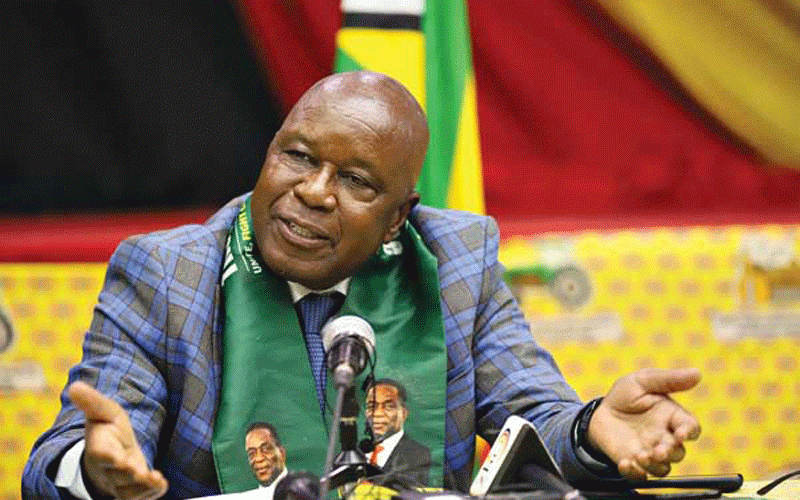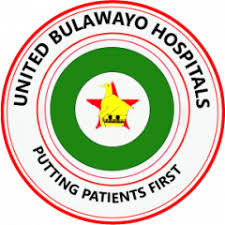
Last week our sister paper had a story with the headline “Detained activists can now be freed: Zanu PF” this comes after close to 200 pro-democracy activists are currently in pre-trial detention as the government accuses them of planning to demonstrate during the Sadc summit.
Some of the opposition activists were arrested and thrown in jail for allegedly participating in anti-fuel price hike protests in January 2019.
Notables, who were arrested since June include opposition politician Jameson Timba, Amalgamated Rural Teachers Union of Zimbabwe secretary-general Robson Chere, Transform Zimbabwe leader Jacob Ngarivhume, councillor Samuel Gwenzi and feminist Namatai Kwekweza.
The arrests of these activists, allegedly on the grounds that they were planning to protest during the summit, highlight the Zanu PF government’s long-standing pattern of suppressing dissent and cracking down on civil liberties.
This latest incident is just the latest in a series of human rights abuses perpetrated by the ruling party, which has a well-documented history of violating the rights of its citizens.
When President Emmerson Mnangagwa took power in 2017, following a military-backed coup that ousted long-time ruler Robert Mugabe, he promised to usher in a “new dispensation” and end the abuse of human rights that had characterised the Mugabe era.
However, the reality on the ground has been quite different, and the Mnangagwa administration has continued to engage in the same repressive tactics employed by its predecessor.
One of the most egregious examples of the Zanu PF government’s disregard for human rights is its treatment of activists and civil society organisations.
- Mnangagwa marches expose Zanu PF fights
- NoViolet Bulawayo’s new novel is an instant Zimbabwean classic
- Zanu PF bigwigs face axe in purge
- Jah Prayzah, Zanu PF rekindles ‘lost love’
Keep Reading
Zimbabwe has a vibrant and vocal civil society, with numerous NGOs and advocacy groups working to promote democracy, transparency, and the protection of fundamental freedoms.
However, these organisations have often found themselves in the crosshairs of the ruling party, which views them as a threat to its hold on power.
In an interview with the NewsDay, Zanu PF spokesperson Christopher Mutsvangwa downplayed the arrests and detentions saying they were a precautionary measure to ensure the smooth running of the regional gathering.
“Now that the summit is over and was a success, those who were held as a preventative measure can be released. The most important aspect of a country is order,” he said.
“And when everybody else is trying to put on a good show on a particular occasion, you decide to become a champion of disorder. You are a deviate.
"So if you are a deviate, you are going to be dealt with in the right way, which is to put you in jail so that you don’t create a sideshow which takes the attention away from the event.”
Mutsvangwa’s controversial sentiments have sparked debate over the questionable legality of the detentions and the apparent abuse of state power by the ruling party.
The Zanu PF government’s assault on civil liberties extends beyond the targeting of activists.
The party has also been accused of using the justice system to harass and intimidate its critics, with numerous opposition figures and journalists facing politically motivated charges or being subjected to arbitrary arrests and detentions.
One high-profile example is the case of Hopewell Chin’ono, a prominent journalist who has been arrested multiple times for his reporting on government corruption and the government’s response to the Covid-19 pandemic.
Chin’ono’s arrests, which have been widely condemned by international press freedom organisations, have been seen as a clear attempt to silence a critical voice and deter other journalists from holding the government accountable.
The Zanu PF government’s hostility towards civil society organisations has also extended to the broader NGO sector.
In recent years, the government has introduced a series of restrictive measures aimed at limiting the ability of NGOs to operate freely and effectively.
These measures include the imposition of stringent registration requirements, the imposition of funding restrictions, and the harassment and intimidation of NGO staff.
The government’s attacks on NGOs have been particularly concerning given the crucial role these organisations play in providing essential services and supporting vulnerable communities.
Many Zimbabweans rely on the assistance and support provided by NGOs, particularly in the areas of healthcare, education, and humanitarian aid. By targeting these organisations, the Zanu PF government has effectively deprived its citizens of much-needed resources and support.
The continued assault on human rights and civil liberties, even in the face of Mnangagwa’s pledges to the contrary, has earned the Zanu PF government widespread condemnation both domestically and internationally.
The party’s actions have placed it in the “crosshairs” of human rights organisations, pro-democracy advocates, and the international community, who are closely scrutinizing its behavior and demanding accountability.
This pressure has not gone unnoticed by the Zanu PF government, which has sought to deflect criticism and portray itself as the victim of a coordinated international campaign to undermine its authority.
The party has accused foreign governments and NGOs of funding and supporting its political opponents, and has sought to portray the crackdown on civil society as a necessary measure to protect national security and preserve the country’s sovereignty.
However, these claims have done little to assuage the concerns of the international community, which has remained steadfast in its demands for the Zanu PF government to respect human rights and uphold the rule of law.
The party’s continued intransigence and its refusal to meaningfully address the concerns raised by its critics have only served to deepen the international community’s mistrust and undermine its credibility on the global stage.
When we thought we had seen it all Mutsvangwa goes on to say, “Those who wanted to be flies in the ointment, the ointment was well protected and the flies were shanted away. They got the right medicine because they wanted to create a scene.
This was their last move; they will never get another chance again because now they know what happens when they try to behave in a certain manner. And I am sure there will be a good reason to free them afterwards,”
This revealed that they have no shame in everything that they are doing, they feel proud of themselves for harassing and intimidating citizens of Zimbabwe, practically we are going nowhere.
As the Zanu PF government faces increasing pressure from both domestic and international stakeholders, it remains to be seen how it will respond.
Will the party heed the calls for reform and genuine democratic change, or will it double down on its repressive tactics and further entrench its grip on power?
The answer to this question will have profound implications not only for the people of Zimbabwe, but also for the broader regional and global dynamics.
History always repeats itself, Robert Mugabe’s 37-year rule was marked by a relentless assault on freedom of speech, as he wielded state security apparatus to silence dissenting voices.
However, despite his ouster in 2017, the new dispensation under Mnangagwa has continued this repressive legacy, demonstrating that Zanu PF’s DNA remains unchanged.
Mugabe’s regime was notorious for its brutal suppression of free speech. The police, military, and intelligence agencies were used to harass, detain, and torture anyone who dared to criticise the government.
Journalists, activists, and opposition politicians were particularly targeted, with many forced into exile or hiding.
The post-Mugabe era was expected to usher in a new era of tolerance and respect for human rights. However, Mnangagwa’s administration has disappointed by perpetuating the same repressive tactics.
The security apparatus remains a tool for silencing dissent, with the police and military deployed to quell protests and arrest critics.
Moreover, the Mnangagwa administration has introduced new legislation aimed at stifling free speech, such as the Cybersecurity and Data Protection Act, which grants sweeping powers to monitor and control online activity.
The continued persecution of journalists, activists, and opposition figures underscores Zanu PF’s enduring hostility towards free speech.
The party’s instincts remain authoritarian, intolerant of dissent, and committed to maintaining power at all costs.
*Gary Gerald Mtombeni is a journalist based in Harare. He writes here in his own personal capacity. For feedback Email garymtombeni@gmail.com/ call — +263778861608









